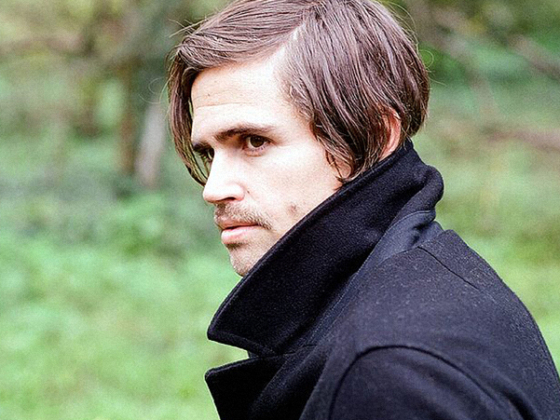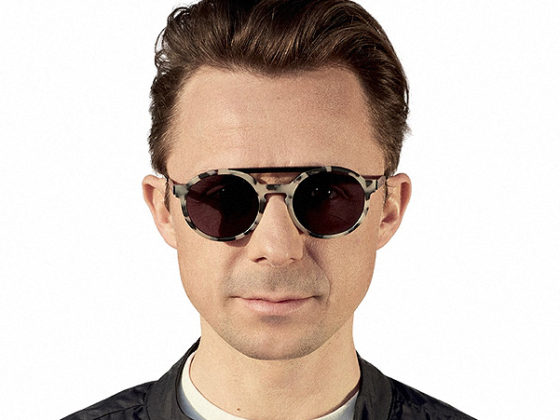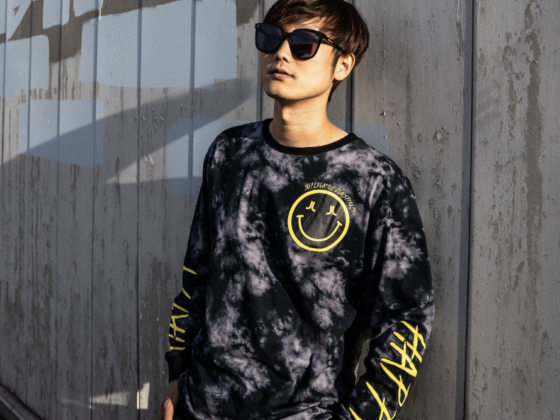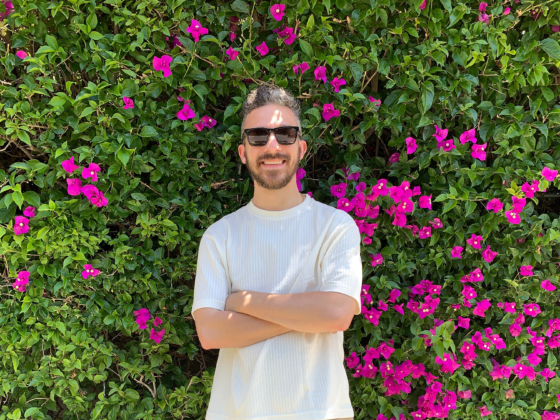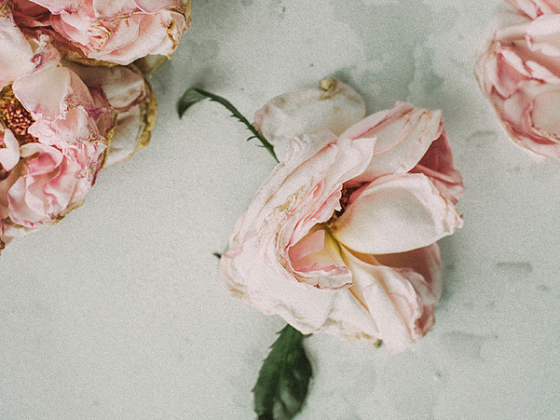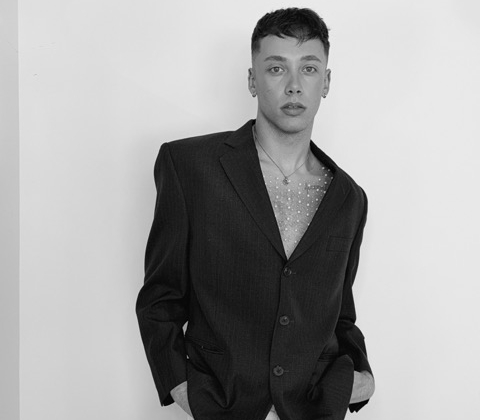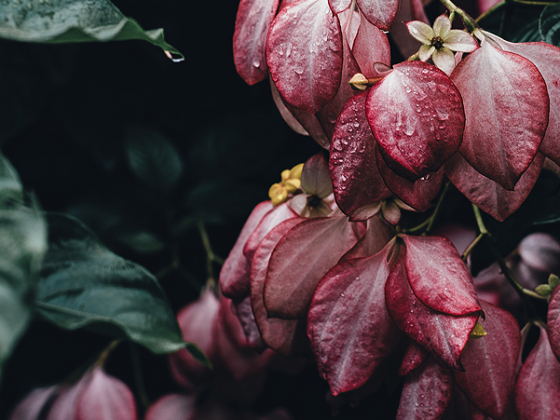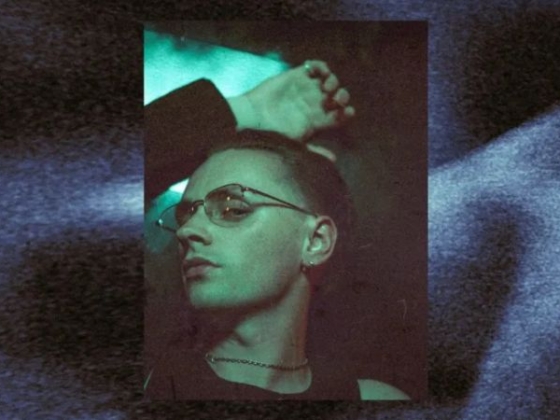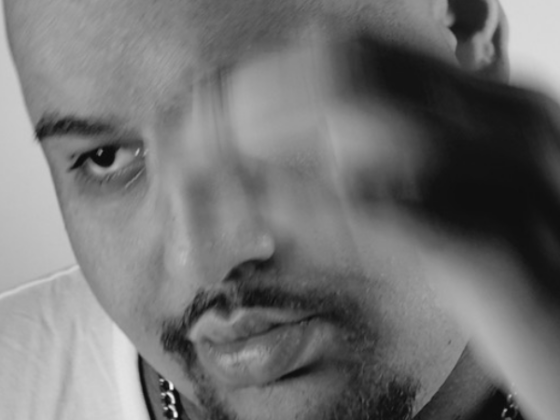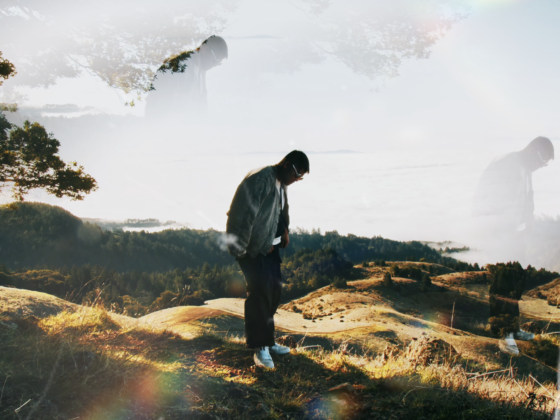Dumbfoundead is an LA legend. Formally known as Jonathan Park, the rapper has battled with the best as part of the mythic Project Blowed crew, repped his hometown of Koreatown like nobody's business and continuously evolved his style and delivery over the past decade, and then some. And here at the end of 2017, he's still going and considers this all just the beginning.
On the heels of his latest release, Rocket Man, EARMILK caught up with Dummy for a quick chat about what his past, present, and future. We spoke about critical fans, becoming a voice of a people, being banned in the motherland and why sometimes you have to just let the music do the talking. To Mr. Park, a career is like a marathon, and this is just the warm-up.
——–
EARMILK: I've got a few questions I'd like to ask you about your EP, Rocket Man, but before I do, I'd like to talk quickly about your past. You're an LA underground hero; you came up with Project Blowed and the Swim Team, around artists like Aceyalone, Busdriver, Pigeon John, Open Mike Eagle, Verbs, 2Mex? Can you talk to me about that creative environment and how it impacted you as an artist?
Dumbfoundead: Definitely. A lot of the artists you just named are my personal heroes and a lot of underground and unsung heroes if you will. I think being around that environment influenced me because I’d never heard rap like that. It helped me think outside the box, as far as making music and made me unafraid to go outside the boundaries. There were abstract artists to gangster rappers, dudes who were melodic like Pigeon John or insanely intelligent cats like Open Mike Eagle. Combining all of these different styles made me less fearful going into these territories. Like, I had a project about video games, and I was just not afraid to do that. Especially in a time when everyone was trying to be too cool and shit. I think it helped me not be scared, most importantly. That also came a lot from the battle background of Project Blowed. There was a lot of battlers and rap battles going on that made unafraid to say or do what I wanted. And just being aggressive about snatching that mic.
EM: 100%. I feel like as an artist, or any creative, if you're afraid to put yourself out there or do what feels most natural to you, it's never going to come out right. So back to Rocket Man, I understand you took inspiration from Trump's speech about Kim Jong Un, can you tell me a bit about what made you say, "Alright, that's what I want this project to be called?"
DFD: Originally, I just found it funny, to be honest. It was this kind of dad joke that I found amusing. He was poking fun at this guy who has nuclear weapons, you know? I found a weird humor in that, and the nickname was such a dad joke sort of thing. It was one of the funniest things I think I've ever heard Trump say [laughs]. Especially, being a Korean person, turning on the TV and seeing shit about North Korea all the time. It was right around the time I started working on this project, so I was like "dude, I've got to call this shit Rocket Man. It's going to grab people's’ attention." I wanted to create this fictional character based off of the nickname and turn it into a whole different character.
EM: That's awesome [laughs]. So speaking of "Rocket Man," the title track, and it's video, can you tell me a bit about what it was like seeing your video banned in South Korea?
DFD: A lot of the people on my team are Korean-American, so when we heard that it was banned we were all like "Yo, this is kind of tight" [laughs]. But it was wack too because we are trying to promote it in Korea, it's a market that I have because I am Korean. The label putting out this project is a Korean label, so I'm sure they're not super stoked about hearing that it was banned. But for us, we were like "this is some tight shit." But ya, it was weird. The song itself isn't a political song, it's just a turn-up kind of track, but obviously, there's a quick part where there's a Trump vocal sample, which could probably have been the problem. And maybe just the name itself. But the whole project is called Rocket Man, and it isn't necessarily banned out there. So I don't know what the deal is. They did mention that there were other things like drinking in the video, but that's complete bullshit. I think they just made that up. There is tons of drinking in Korean videos; it's like a top drinking country in the fucking world.
EM: That's got to be frustrating from a marketing standpoint, but it is pretty dope to know you could artistically push buttons that got you banned.
DFD: Exactly. It was the intention of the project to push buttons, no pun intended [laughs]. It's ironic too because a year ago I put out a song called "Banned in the Motherland." So, it's sort of funny that this happened.
EM: One of the best lines off of the project, at least in my opinion, is off of "Every Last Drop." "It’s funny how they say I’m the voice of a generation when all I really wanted was pussy and being famous.” [laughs] I literally laughed out loud when I heard that. That shit is fantastic. Can you go into a little bit more detail about that line and what you were thinking when you wrote it?
DFD: Oh ya, definitely. Thank you, I appreciate that. I felt like that line was kind of slept on. No one commented on it, but it was just a super honest perspective on my role and my contribution to Hip Hop. Specifically, to the Asian-American voice and not expecting to be that voice. When I was coming up with Project Blowed, I wanted to be a rapper. And anytime someone mentioned me being an Asian-American voice; I was like, "Nah nah, fuck that. I'm not an Asian-American rapper. I'm just a rapper!" That was the shit I wanted to hold down. And I'm sure all these little Asian rappers coming up now; they're on the same shit. Everybody on that tip is like "I want to be respected an artist and just a rapper. and not an Asian-American rapper." But, as you grow older, you realize that that’s the community that you're speaking out for, you'll start noticing them and the impact you're making. There are a lot of kids who look up to you for different reasons, even the fact that you look just like them. It does mean a lot to a lot of people. So that's kind of what that line meant, just being blunt about it. It was just the fact that I didn’t go into Hip Hop with that mindset. Like, when some of these Asian-American publications ask me "Why did you get into rap?" they want me to say "I wanted to speak on the voice of my community" but nah, initially I just wanted bitches [laughs]. I wanted girls; I was at the house parties getting free alcohol and drugs. That's why I got into it initially. All the rappers that I saw around me were the coolest guys on the block. I think that was just the transition, meaning that yes, eventually it did turn into something bigger than Hip-Hop.
EM: First off, I appreciate the honesty. I feel that a lot of people would puff it up to be something more meaningful than it is so I appreciate you giving it straight like that. So when I heard that I was like, "damn, he's spitting the truth right there." I wanted to be a rapper when I was younger too because you get the girls, the accolades, etc. Was there a moment or a period when you started switching over and recognizing your influence on the younger generation and the people who are following you?
DFD: Ya, it happened even before I even started making my first track because I come from the battle rap world. When I first started battling, it was already the end of Jin from the Ruff Ryders era, and he was the only Asian guy battle rapping. So he was the dude when I was watching 106 and Park. For young Asian kids, it was a big deal. Obviously, he went to Ruff Ryders and put out an album that didn't get that much love and got shitted on, but as far as a battle rapper, Jin was killing it. And it was a very special moment because we had never seen an Asian dude on TV holding his own in the youth culture. So that was dope for us. So when I was battle rapping and started getting millions of views off of street battles and battles leagues, all these Asian kids and peers would come up to me on the street like "yo, yo, you're holding it down." From like Asian gangsters to regular Asian cats. It was cool. I always felt like an outsider in my own community of Asian-American kids. When I was growing up, I was a film nerd, and an art kid, I didn't mesh well with my own Koreatown community of Asian kids. I was into some other shit. I hung out with either my rap friends, little Silver Lake indie art kids or Echo Park Latino Skaters. I didn't hang out with a lot of the Asian kids around my block. It kind of a cool feeling, all of a sudden when Asian kids started fucking with me [laughs]. And it was all through battling. It created this surprise for them with the fact that I was getting hit with all these Asian jokes by my opponents, but still holding my own and roasting them back.
EM: As we discussed earlier, politics is adjacent to this project, both because of the title and the fact that in 2017 politics is everywhere. With that in mind, do you think artists such as yourself have to talk about politics and major hot-button issues? Or is it alright to leave it well enough alone? I know in "Safe" you discuss how Asian-Americans are underrepresented in movies and you bring that into the conversation. Do you think artists should be doing that?
DFD: I think it's alright if they don't. It's their decision. But my experience from doing both, making songs for partying and making songs with a message, some of the songs with a message get the most views and response. Which, in turn, tells me that it is one of the best ways to communicate things you are passionate about or have in mind. I do think that if you are passionate about a message, or your political views and you don't talk about it in your music, I think you're playing it safe. You're playing it safe, and you're scared. Which I don't think you should be as an artist, and that, is wack. So if you feel passionate about it, then yea, you should speak on it. I see some artists who just tweet about it or put some post about it but don't put it in their music, and to me, that's wack. Like, you have this outlet where you can communicate, and it's the best way because you can make people interpret it in different ways too, you don't have to explain that song. You can just use that as your piece of the conversation, and that's when it becomes art and not just you preaching. I remember when I put out that "Safe" song, all these people wanted to interview me about the song, NPR, Huffington Post and all this shit, and I regret doing interviews after that song. I should have just left my piece as the song. Once I started explaining it, it became wack. I was like, "why am I explaining my piece to the conversation that I already made?" Like, that was the answer, what I had already said. My song was the interview already.
EM: That's an interesting point. I've always wondered that, from an artistic standpoint. I'm a big fan of Aesop Rock, and I remember reading an interview where he said he doesn't like to explain his music. He thinks it's up to the listener to figure it out and take whatever they want and not be told a meaning. That's all part of the discovery and beauty of music.
DFD: Exactly! I feel the same exact way. I learned that lesson from "Safe." And also the fact that I'm not a well-spoken professor dude [laughs] who goes to panels and shit. That's why I rap because that's how I can talk, that's my gift. That's the way I speak or communicate. As soon as they try to interview me on NPR, I'm going to say "shit" and "fuck" a lot while we try and talk about it.
EM: Taking a step away from politics for a second, let's circle back to the record. Your EP is six tracks, many of which sound sonically different from the next. You're very much the type of rapper who changes his style on a moment's notice. How did this dynamic style of delivery come about?
DFD: I like all different types of styles. I love tons of new shit, tons of old shit. It's been a gift and a curse though, to be honest. When you have that many styles and different fans are drawn to different styles, they shit on you as soon as you try to do something new. In a sense, your old fans become your worst enemies. It's been a gift and a curse. Sometimes your fans are your worst enemies when they don't let you grow.
EM: Hip Hop fans can be real hardened and evil sometimes. Real critical.
DFD: Oh, are you kidding me? They fucking hurt my feelings every day, bro.
EM: Damn.
DFD: [laughs] I don't know, it just sucks, man. You just have to ignore it, obviously, but you do feel pressure from so many different places when people say this or that. But, in the end, I want to experiment with new sounds. I feel blessed that I'm still here and still have fans. My goal is to make new fans, and I'm not going to make new fans if I don't grow as an artist. I feel like I've reached my peak getting the types of fans that I could get with a certain sound.
EM: So speaking of continuing to develop and grow, it's the middle of December 2017. What do you have going on and what are you looking forward to doing next year?
DFD: I'm working on a lot of new music, obviously also, listening to everything that's around me. I'm going to continue to put out tons of music. Next year I'm going to be touring a lot. I also act, and I'm writing TV shows right now, so I have a lot of stuff in development in that realm as well. My music is my main shit, though. I prioritize that.
EM: On the closing track, "Defiant Wons," you have a line: "My life is a movie, the opening scene is right now." Continuing that metaphor, what does the rest of Dumbfoundead's movie look like?
DFD: I think I'm more energized than ever. It's crazy, I'm 31 years old, I'm turning 32 in February, but I feel far more energized. I made a lot of changes in the last year, even as far as health is concerned. I quit drinking; I quit a lot of drugs [laughs]. I was really on one. But I'm definitely on my health shit. I'm trying to run a marathon. I've got to train for that; I've been taking running seriously. But ya man, it's just the beginning, and it doesn't just end with music. I always say I'm an all-around entertainer with acting, comedy and all that so that people can expect a lot on all different media platforms. It's great. I love my journey because I feel like nobody can call me just one thing. I've been in it all. I was battle rapping, I've been in the K POP world, I fit into the SoundCloud rap world and so on. To me, that journey is worth more than anything else. The story is going to be crazy; the Dumbfoundead book is going to be crazy.
EM: Hell ya, I like that. Is there anything in closing you'd like to add?
DFD: I want to thank everybody who has been following the journey for this long. It's been 10+ years for me, which is crazy to say because I look at interviews with some of these young artists and they've only been in it for a year or two, and they're blowing the fuck up. But the truth is, this shit is a marathon. I've seen rappers be at the top of their game and be popular, but it's about longevity. So it doesn't phase me or anything when kids are telling me things like, "Oh dude you've been in it this long, and you're not as big as this kid?" I'm like, "bro; I've been there. This shit is a rollercoaster." I think it's all about focusing on your journey and I appreciate everybody who has been following mine.
Connect with Dumbfoundead: SoundCloud | Instagram | Twitter


